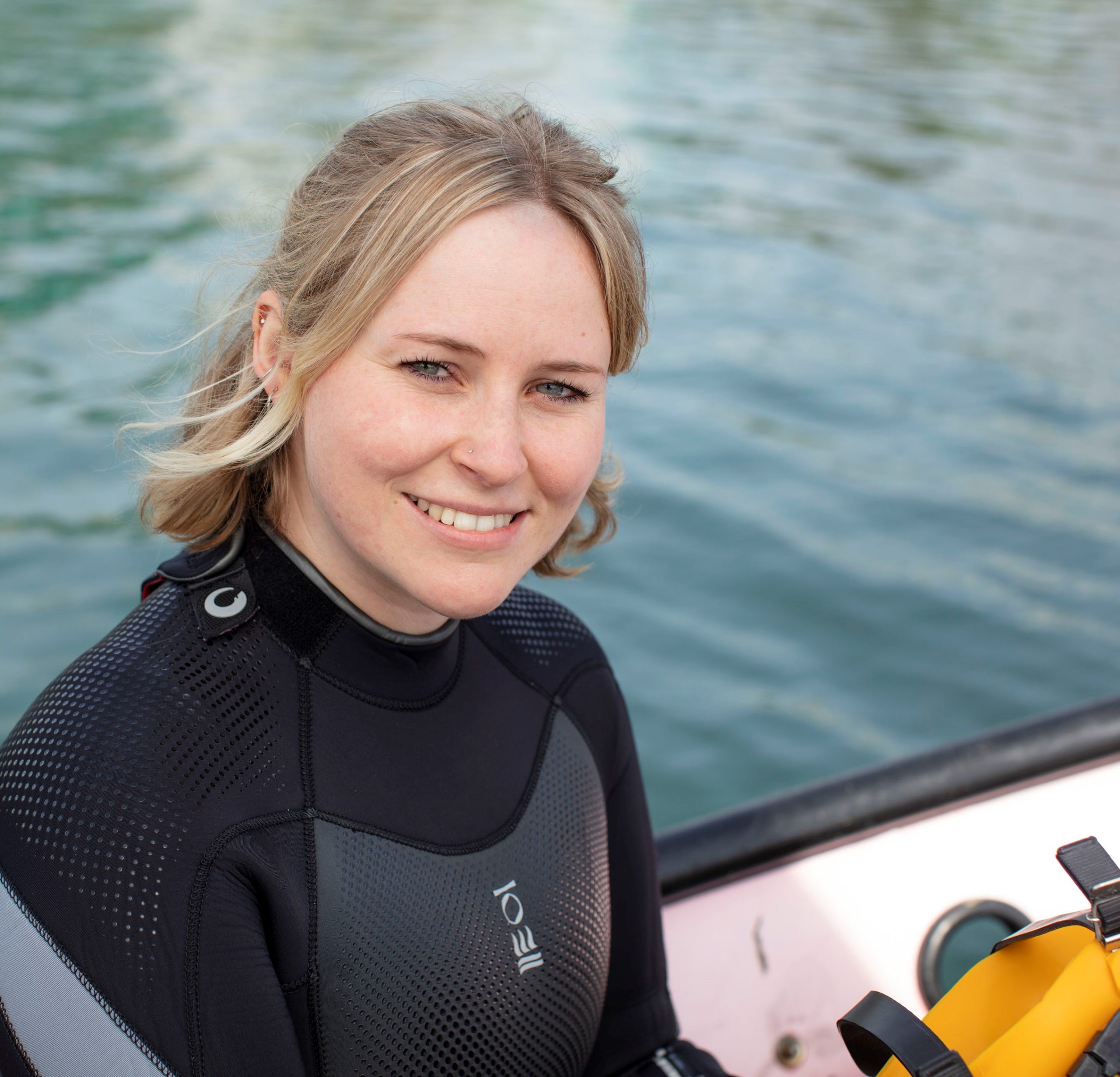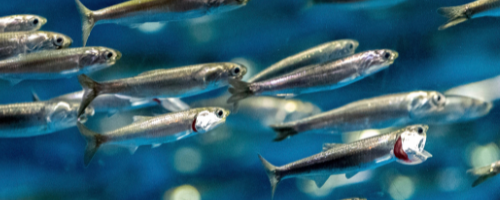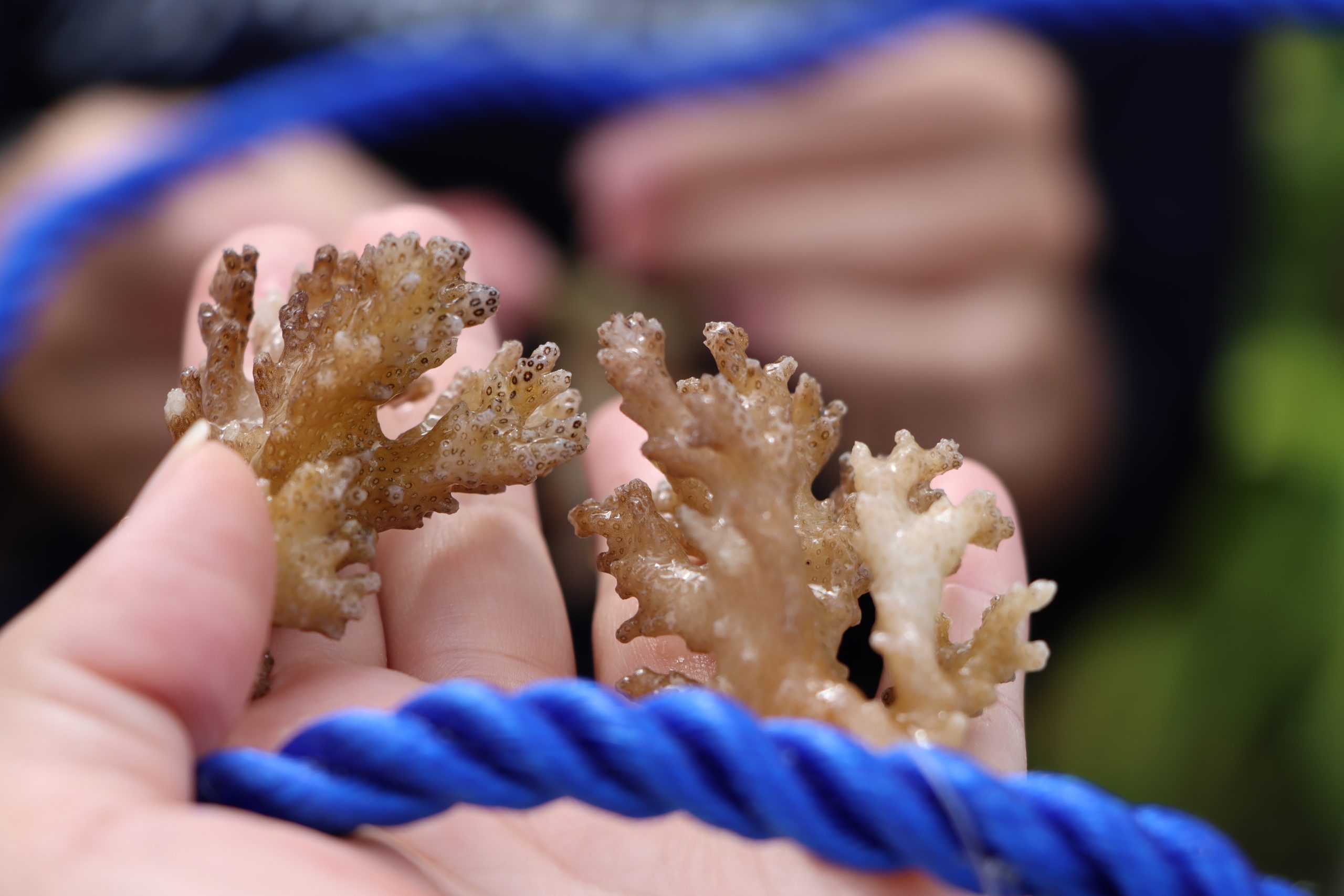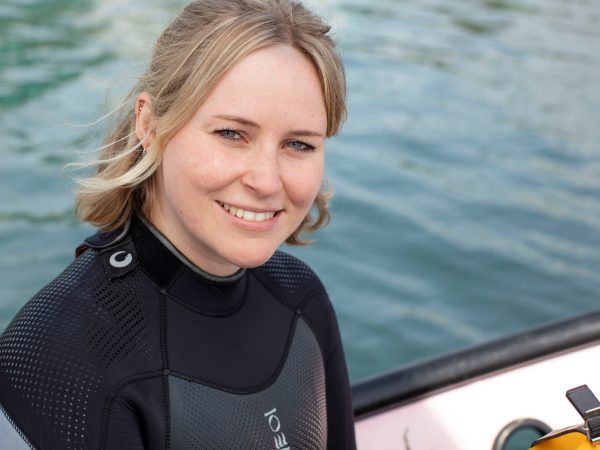
This week on ‘An Interview with WiseOceans’ we spoke with Naomi Westlake from Marine Conservation Philippines
Name: Naomi Westlake
Role: Science Officer
Company: Marine Conservation Philippines
Top Tip: Apply for everything!
Quick Fire Questions
1. What inspired you to pursue a career in marine conservation?
I had my first SCUBA diving experience in Mauritius when I was 14. I was very lucky that my family believed the best way to learn about different countries and cultures was to go and see them for ourselves. During several family holidays, I was able to dive in many beautiful locations around the world, and I just completely fell in love with the ocean. I now realise how fortunate I was to find my passion so early on in life, which wouldn’t have been possible without the support of my family.
It wasn’t until I was working on the Great Barrier Reef though, 5 years after doing my PADI Open Water course there, that I saw the effects of coral bleaching first-hand. This was back in 2017, after two consecutive mass coral bleaching events, and that moment set me on the path to marine conservation specifically. I wanted to be part of something bigger, and to try and give future generations the opportunity to experience our oceans as they are now, not to just read about it.
2. What steps did you take or are you currently taking to achieve your career goals?
I knew very early on that I wanted to work in marine biology, so I found out which A-Levels I would need to study in order to gain a place on a BSc. Marine Biology course at university. Before going to university, I took two years out of education to work and travel, and to complete my PADI Divemaster qualification. At the end of my first year of university, I gained my HSE Part IV commercial diving qualification, which allowed me to volunteer as a diver at my local aquarium. I also took on various other volunteer roles, as a Research Assistant for a coral conservation NGO (including a funded field trip), as a Scientific Diver for the university, as a Research Intern here at Marine Conservation Philippines (MCP) during my placement year, and later as a Husbandry Intern whilst I figured out my next steps after graduating.
Soon after this, I was offered the only spot on my funded Research Master’s degree at the same university, working on sea turtle genetics in Grenada, in collaboration with an NGO called Ocean Spirits, St. George’s University and the University of Georgia, USA. I was particularly excited about this as I had developed a new passion for using molecular-level processes to inform policy and conservation practices. Throughout my postgraduate degree, I balanced multiple part-time jobs, including Teaching Assistant, Lab Technician and Student Ambassador roles at the university, and a Support Biologist/Diver position at the aquarium. Essentially, I tried to take advantage of any opportunity that came my way in the hope that it would open a new door for me at some point, however far down the line. I also had funding to attend a conference, and successfully applied to present my research at the International Sea Turtle Symposium (a little nerve-wracking…). I even paid for my RYA Powerboat Level 2 license and eventually learned to drive, something I had never quite gotten around to. Over time, I racked up a range of skills, experience and qualifications to give me a well-rounded CV once it came to applying for jobs that I was interested in. I hope to continue developing professionally – who knows what opportunities the future may bring!
3. How did you obtain your current position?
During my placement year at university, I volunteered with Marine Conservation Philippines (MCP) as a Research Intern. I carried out an independent research project with them here, which I was able to take back to university and use for my final year dissertation (a blessing during the pandemic). At that time, I saw what marine conservation work could really be, and I used social media to keep an eye out for any job opportunities once the time came for job hunting.
A few months after I finished my postgraduate degree, they advertised a Science Officer position, which I of course applied for. I received a very encouraging response, but was ultimately unsuccessful because I wouldn’t have had time to get my driver’s license before the role began. I was disheartened by this because I thought to myself ‘with all my experience, what a frustrating reason not to get a job in marine conservation…’. However, having been to MCP before and knowing that it was all shore-based diving (i.e., no boats), I also understood that it was essential to the role. So, this gave me the bump I needed to get my driver’s license!
Over the next year, I took on a part-time job to pay the bills, carried on with my driving lessons, and continued applying for a wide range of jobs in the field. I was offered quite a few interviews (more than I expected) at other NGOs and research institutes, and though I was unsuccessful in these applications, it gave me hope that I would find something eventually.
In the meantime, I also stayed in touch with MCP. They checked in a few times asking about my driving progress, and in turn, I let them know when I passed my test a few months later. They then reached out again when they were next looking to recruit, so we set up a call and they offered me the position 3 days later.
I’m incredibly grateful to MCP for being such a defining part of my early career, and I feel very lucky to already be in a role that is such a good fit for me. I honestly thought it would take longer to find something that aligned so closely with my skills and values.
4. Which part of your job do you enjoy the most?
It’s hard to choose just one thing! Being underwater every day feels like a real privilege, but I also really enjoy the variety of my job. My role includes teaching the science programme to volunteers, conducting surveys, coordinating the research programme and any associated dives, supporting the sea turtle programme, contributing to our bi-annual reports for the local government units, and taking part in community engagement. No two days are the same!
One part of the role I’m especially enjoying is managing MCP’s Research Internship programme. I was actually the last Research Intern before the pandemic, and the programme hadn’t restarted since, so it’s very exciting to now be the person developing it. Before I arrived, I felt like I was ready for more responsibility, and I’m grateful to have the chance to shape something that supports other students and early-career scientists like myself.
Lastly, I really admire how closely MCP works with the local community (e.g., fisherfolk associations, youth leaders, local government units) here in Negros Oriental. It’s taken years for the organisation to build up such strong and positive working relationships, which are absolutely essential to the wonderful work that we achieve here. It’s something I think is really special.
5. Are there aspects of your position which make you feel that you are really ‘making a difference’?
One of the most meaningful aspects of my role is being involved in community outreach and education. It was something completely new to me when I started, but I quickly realised how important it is for long-term conservation success. Capacity building within the local community, especially through accessible learning opportunities, feels like a really valuable part of what we do. It’s incredibly rewarding to contribute to programmes that help build skills and spark interest in people who might not otherwise have had access to such opportunities. Helping to inspire and support the next generation of conservationists makes it feel like we’re genuinely making a difference.
Both food security and alternative livelihoods are also at the heart of MCP’s work. There’s a deep connection between marine conservation and food security, especially in coastal communities where people rely heavily on the ocean for their livelihoods and nutrition. By helping protect and manage marine resources sustainably, we’re not just supporting ecosystems – we’re supporting people too.
6. What do you know now that you wish you knew when you were starting out?
First of all, imposter syndrome is really common, especially early on. You’re genuinely not expected to know everything, but you do need to be willing to learn. Curiosity and teachability matter far more than perfection, along with the ability to reflect and grow from your mistakes.
Patience is also essential – planning is your friend, but things can and will go wrong! Learning to stay flexible and calm under pressure can make all the difference, especially when you’re working in dynamic field settings.
People skills are just as important as fieldwork skills. Marine conservationists rarely work alone: collaborations, working in remote teams, networking, and navigating cross-cultural environments are often huge parts of the job. It’s worth building those interpersonal skills early on, as they can make a real difference when it comes to securing job opportunities.
7. Are there any skills you never thought you would need but did?
One of the most obvious ones was learning to drive! I didn’t realise just how essential it would be in marine conservation fieldwork. I sometimes wonder whether not having a license held me back in earlier applications without me even realising.
Another big one is public speaking – not just presenting well, but being able to adjust your tone and approach depending on who you’re speaking to. Communicating with a group of local fishermen is very different from giving a talk to university students or presenting at a conference. Learning how to tailor the message to your audience is such a valuable skill in this field, and it definitely takes practice.
Lastly, open-mindedness is something I’ve come to value deeply. It’s easy to carry a narrow perspective of how the world works, but working in marine conservation – especially abroad – requires you to understand and respect the fact that other people may live very differently from you. Being open to new ways of thinking, and learning not just about the places you visit but the people who live there, gives you a much richer and more grounded perspective.
8. What advice would you give to budding marine conservationists?
Apply for everything – cast a wide net and stay open-minded! Be willing to try a range of different roles, especially early in your career, to build up your experience. Be persistent and stick with it. You might get a lot of ‘no’s at first, but eventually, you’ll find your ‘yes’.
After each interview, make a note of the questions you were asked. Over time, this helps you build a kind of portfolio of common topics and your own responses, making you better prepared for future opportunities.
Most importantly, surround yourself with the right people from the start. Find those who support and encourage you – not those who bring you down. A strong support network makes all the difference in a field that can sometimes feel competitive or uncertain. I’ve lost count of the number of times I’ve leaned on my marine biology friends and family members for support – and done the same for them.
9. What is your favourite marine creature and why?
I think my favourite marine creature is probably the mimic octopus. I’d been wanting to see one for years, and recently I was lucky enough to see not just one but two on the same dive!
They’re very intelligent and curious, like many cephalopods, but what sets the mimic octopus apart is how highly specialised they are. They’re true masters of disguise: they can impersonate several venomous species (e.g., lionfish, sea snakes, flatfish) depending on the threat. Amazingly, they weren’t even officially discovered until 1998, which just adds to their mysterious charm. Seeing one in the wild was a bucket-list moment, for sure.
10. What is your most unforgettable moment in the sea?
One of my most unforgettable moments in the sea was during a field trip to Costa Rica with the coral conservation NGO I was volunteering with called Seeking Survivors. A friend from university and I – both on the same course – decided one night to just grab our masks and snorkels and head down to the beach to see if we could find some bioluminescence.
It sounds silly, but it honestly felt like something out of a Disney movie. As we moved our arms and legs through the water, glowing blue sparkles lit up all around us. It was absolutely mesmerising and filled me with child-like curiosity.
What made it even more special was how completely unexpected it was. We weren’t sure if we’d see anything at all, and instead, we ended up having the most incredible time. It’s also something you can’t really capture on camera – you just have to be there and enjoy it, in the moment. The fact that it’s a memory I share with just one other person makes it feel even more personal. I’ve never had another experience like it, and it’s something I’ll never forget.
“A strong support network makes all the difference in a field that can sometimes feel competitive or uncertain.”
Naomi Westlake
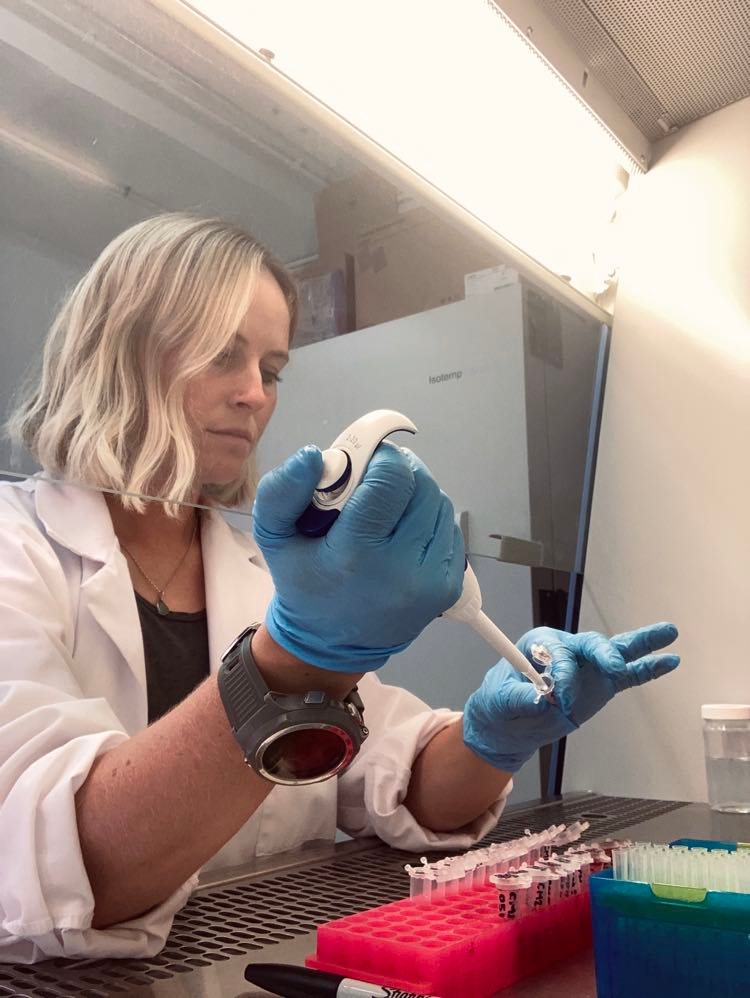
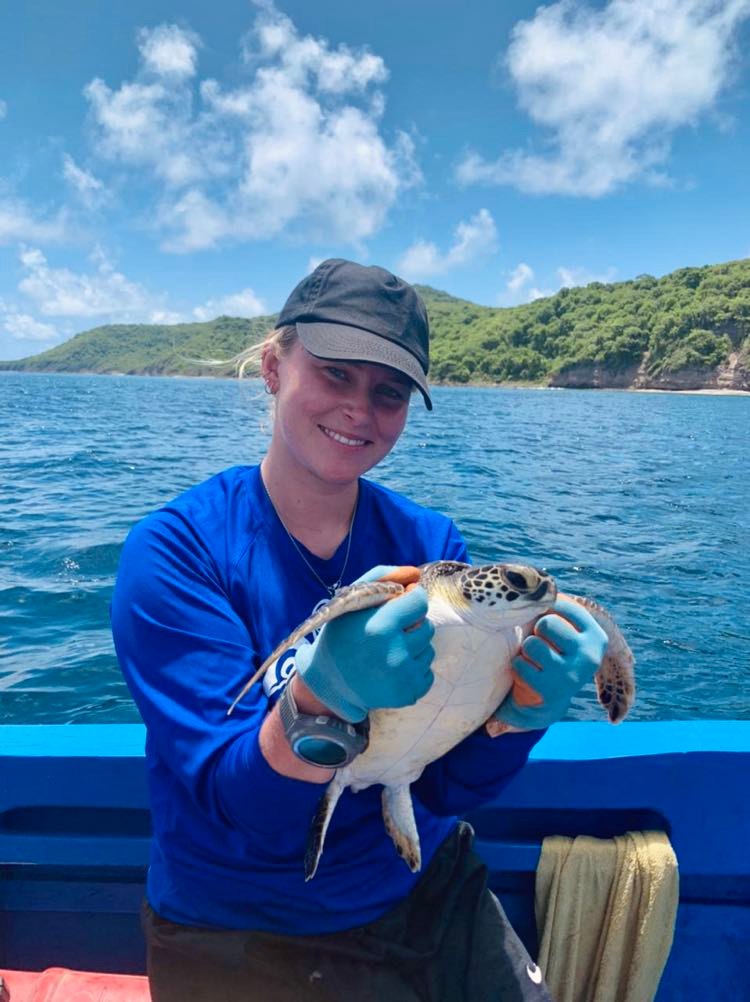
Read more An Interview Blogs here
Sign up for our Weekly free Job Alert here

